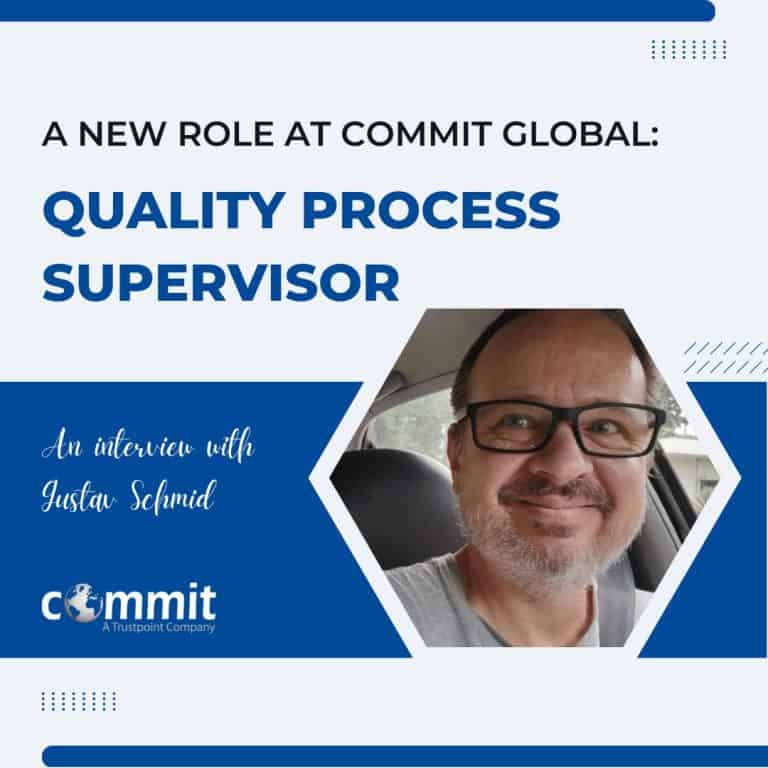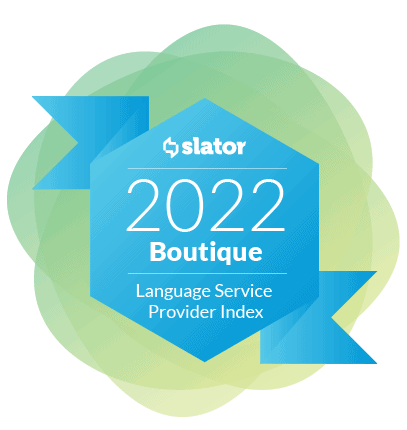|
Listen to Post
|
Listen to this article now:
Commit Global is highly focused on quality, boasting four ISO certifications. Due to our steady growth over the past years and our need for quality-oriented processes, we decided to create the role of Quality Process Supervisor. Gustav Schmid is the first person to hold this role and will be responsible for project quality management and performance analysis of translation teams. We talked to Gustav to get his perspective on the new role and find out what his day-to-day responsibilities will be.
Gustav, when did you join the Commit Global team?
I joined the team in June 2022.
What are your responsibilities in this new role?
My job entails multi-language project quality management. Basically, I address the performance analysis of translation teams through proprietary metrics and administer the resource allocation control per content type and average productivity to achieve pre-established KPIs. I also interact with PMs to monitor volumes and the impact of their variations on meeting deadlines, evaluate the translation of specific terms/phrases analysis and provide translation queries support and clarification to facilitate quality alignment between teams. Among my current responsibilities is to resolve specific style guide issues (e.g., level of formality), address and provide suggestions for new glossary terms, expedite solutions for product-specific questions not covered by reference materials (e.g., if the context is missing), coordinate arbitration of review feedback, and monitoring and controlling translation team performance from a service point of view.
What other QA-related tasks do you handle?
Additional tasks I handle are itemized as follows:
• putting in place corrective actions where service falls short of expectations;
• assisting the quality manager in the evaluation and management of existing linguistic assets (glossaries, style guides, TMs, etc.), query management, and client instruction processes and related issues;
• supervising data on quality and vendor performance, producing statistical quality reports, creating related documentation plus RCA where needed, alongside QIPs for locales undergoing quality issues;
• identifying training needs for translation teams and creating/maintaining training programs, including an onboarding program for new teams;
• customizing client instructions or starting instructions from scratch, as necessary, to ensure that translation teams are clear on process methodology, translation technology, and deliverables.
How do you think having a dedicated Quality Process Supervisor can elevate the quality of the final translated outcome?
Having a dedicated Quality Process Supervisor can elevate the quality of the final translated outcome by overseeing and implementing quality control measures throughout the translation process. This can include establishing and enforcing standards, regularly reviewing and evaluating the work of translators, providing training and support, and conducting quality assessments to identify and address any areas for improvement. With a focus on quality, the supervisor can ensure that the final product meets the required standards, accurately conveys the intended meaning, and is delivered in a timely and efficient manner. This can ultimately lead to a higher level of customer satisfaction and a better overall reputation for the translation service.
What do you consider the most challenging and rewarding parts of your new position?
The most challenging part of being a Quality Process Supervisor is trying to maintain a high level of quality while balancing the need for speed and efficiency in the translation process. This requires attention to detail and the ability to effectively communicate with translators and stakeholders to identify and resolve any issues.
On the other hand, the most rewarding aspect of being a Quality Process Supervisor is likely to see the positive impact of my work on the final translated outcome. This can include improved accuracy, consistency, and customer satisfaction, as well as a higher level of trust and confidence in the translation service. The satisfaction of knowing that my efforts have contributed to the success of the project and the success of the organization can be a significant source of motivation and fulfillment.
Want to learn more about our Linguistic Quality Assurance process? Click here.









